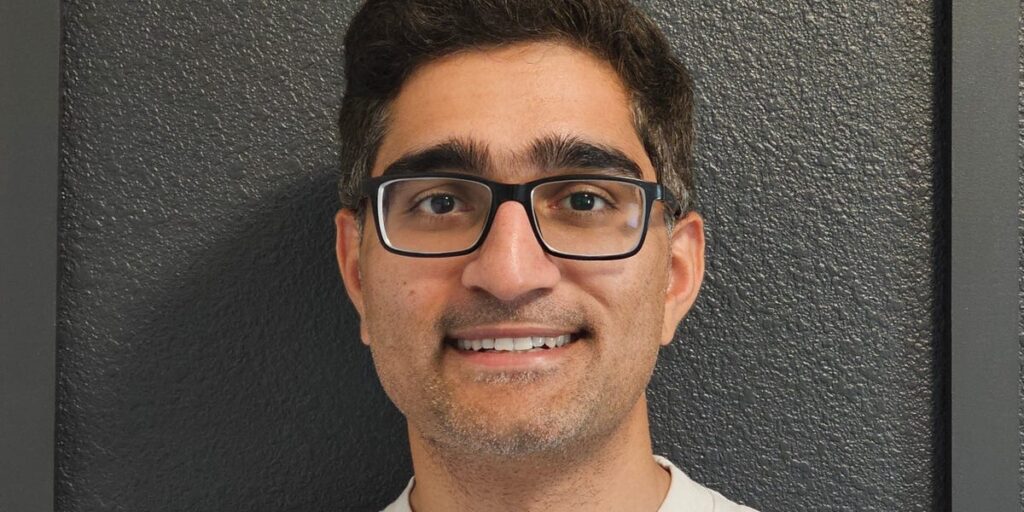This is an as-told-to essay based on a conversation with Jigar Bhati, a member of technical staff at OpenAI. He’s worked at the company since 2023 and previously worked as a software engineer at Twitter. This story has been edited for length and clarity.
I was working at Twitter for almost seven years and was looking for a change in general. Twitter was a big tech company, and it was handling millions of users already. I wanted to join a company that was a bit smaller scale and work in a startup-like environment.
When ChatGPT launched, software engineers were in awe. So I was already using it before joining OpenAI. I was fascinated by the product itself. There was definitely that connection with the product that, as a software engineer, you often don’t feel.
I could also see there was a huge opportunity and huge impact to be created as part of joining OpenAI in general. And I think if I look back at the past two years of my journey, I think that’s mostly true. It’s been exciting seeing the user base grow over two years. I got to work and lead some critical projects, which was really great for my own professional development.
And you’re always working with smart people. OpenAI hires probably the best talent out there. You’re contributing while also learning from different people, so there’s exponential growth in your professional career as well.
Building up the right work experience is key
My career at Twitter and before that had been focused on infrastructure capabilities and handling large-scale distributed systems, which was something the team was looking for when I interviewed with OpenAI.
When I joined OpenAI, there were a lot of challenges with respect to scaling infrastructure. So my expertise has helped steer some of those challenges in the right direction. Having that relevant experience helps when you’re interviewing for any team. So one of the best things is to find the right team that has the closest match for you.
Having public references, for me, helped. I had some discussions and conference talks and met a lot of people as part of that conference networking. That also helps you stay on top of state-of-the-art technological advancements, which helps in whatever work stream you’re working with.
I think OpenAI is probably one of the fastest-growing companies in the world, so you really need to move fast as part of that environment. You’re shipping, or delivering, daily or weekly. And as part of that, I think you really need to have that cultural fit with the company. When you’re interviewing, I think you need to be passionate about working at OpenAI and solving hard problems.
In general for professionals, it’s important to have a good career trajectory so that they can showcase how they have solved real, hard problems at a large scale. I think that goes a long way.
Starting your career at a startup or a larger tech company are both fine. It’s up to the students’ interests and cultural fit as well. OpenAI is not just a place for experienced engineers. OpenAI also hires new grads and interns. I’ve definitely seen people entering as part of that pipeline. And it’s amazing to see how they enjoy working at OpenAI and how they come up with new ideas and new capabilities and new suggestions.
But whichever place you end up in, I think it’s important to have good growth aspects professionally and also for you to ship products. At any company you can create impact for the company and yourself, and be able to have that career trajectory.
OpenAI still feels like a startup
One of the most exciting things is that I think OpenAI still operates like it operated two years ago. It still feels like a startup, even though we may have scaled the number of engineers, number of products, the number of user bases.
It’s still very much like a startup environment and there’s a big push for productivity and collaboration. The velocity and the productivity you get working at OpenAI is definitely much higher than some of the other companies that I’ve worked with.
That makes things really exciting because you get to ship products on a continuous basis, and you get into that habit of shipping daily rather than weekly or monthly or yearly.
It feels great to be working in AI right now. In addition to having a connection with the product, it makes things very interesting when you are able to work from within the company, shaping the direction of a product that will be used by the entire world.
With GPT-5, for instance, we had early access to it and could steer the direction of its launch. Every engineer is empowered to provide feedback that will help improve the model, add new capabilities, and make it more usable and user-friendly for all the different 700 million users out there. I think that’s pretty amazing and speaks to the kind of impact you can make as part of the company.
Read the full article here


